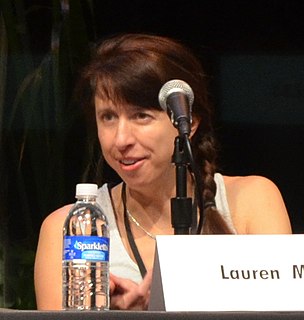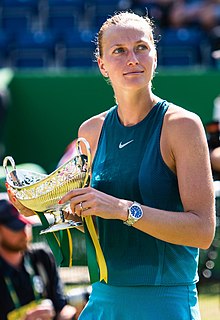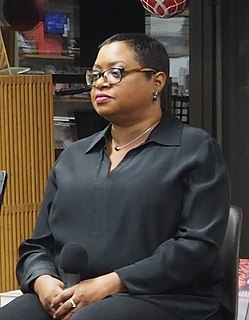A Quote by Doris Lessing
She was thirty-nine. No, she did not envy her eighteen-year- old self at all. But she did envy, envied every day more bitterly, that young girl's genuine independence, largeness, scope, and courage.
Related Quotes
But when did you see her, talk to me? When did you see her go into the cave? Why did you threaten to strike a spirit? You still don't understand, do you? You acknowledged her, Broud, she has beaten you. You did everything you could to her, you even cursed her. She's dead, and still she won. She was a woman, and she had more courage than you, Broud, more determination, more self-control. She was more man than you are. Ayla should have been the son of my mate.
The Hillary Clinton story basically is this. And see how similar this sounds to the old days before the modern era of feminism raised its head. You're a girl, you're a young woman, what do you do? You go off to college. That's what she did. Why do you go? To meet your husband. That's what she did. She wouldn't be where she is if it weren't for her husband.
Elisabeth, again, while she praises her, is so far from hiding the Divine glory, that she ascribes everything to God. And yet, though she acknowledges the superiority of Mary to herself and to others, she does not envy her the higher distinction, but modestly declares that she had obtained more than she deserved.
The doctor's wife wasn't a bad woman. She was sufficiently convinced of her own importance to believe that God actually did watch everything she did and listen to everything she said, and she was too taken up with rooting out the pride she was prone to feeling in her own holiness to notice any other failings she might have had. She was a do-gooder, which means that all the ill she did, she did without realizing it.
I don’t think I pity her. She doesn’t strike me as a girl that suggests compassion. I think I envy her... I don’t know whether she is a gifted being, but she is a clever girl, with a strong will and a high temper. She has no idea of being bored...Very pretty indeed; but I don’t insist upon that. It’s her general air of being someone in particular that strikes me.
The girl was grateful to the young man for every bit of flattery; she wanted to linger for a moment in its warmth and so she said, 'You're very good at lying.' 'Do I look like a liar?' 'You look like you enjoy lying to women,' said the girl, and into her words there crept unawares a touch of the old anxiety, because she really did believe that her young man enjoyed lying to women.
But what I kept wondering about is this: that first second when she felt her skirt burning, what did she think? Before she knew it was candles, did she think she'd done it herself? With the amazing turns of her hips, and the warmth of the music inside her, did she believe, for even one glorious second, that her passion had arrived?
"She (Minnie Ruth Solomon) was unusual because even though I knew her family was as poor as ours, nothing she said or did seemed touched by that. Or by prejudice. Or by anything the world said or did. It was as if she had something inside her that somehow made all that not count. I fell in love with her some the first time we ever talked, and a little bit more every time after that until I thought I couldn't love her more than I did. And when I felt that way, I asked her to marry me . . . and she said she would."
I think she definitely played a great tournament here. I mean, she reached the final as a very young girl. I know she can be very dangerous. I just did what my coach David told me, that I had to really go for every shot, to not really give her the time for her game. Definitely she's a talented player.
When I looked at [Fannie Lou] Hamer and that speech it seemed to me that she had to be the bravest woman ever, to come before that body and to assert her rights, when she knew that she was going lose that battle. But she did it anyway, because she knew she was speaking not just for herself and for that day, but for me, and for all the other young women who were coming behind her. She didn't know our names, but she was working for us. I find that incredibly empowering.
[Short Talk on Sylvia Plath] Did you see her mother on television? She said plain, burned things. She said I thought it an excellent poem but it hurt me. She did not say jungle fear. She did not say jungle hatred wild jungle weeping chop it back chop it. She said self-government she said end of the road. She did not say humming in the middle of the air what you came for chop.







































